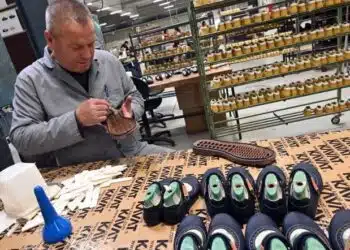Brussels – It is now a matter of a few months, and new European Union rules on the eco-design of products will become a reality. With 65 votes in favour, 10 against and 7 abstentions, the green light came today (Jan. 11) from the Euro Chamber’s Committee on Environment, Public Health, and Food Safety (ENVI) to the Regulation on Ecodesign of Sustainable Products, as defined by the agreement between co-legislators of the EU Parliament and Council reached on Dec. 5 last year. A very large majority, paving the way for final approval by the Strasbourg plenary session in the vote expected in April.
Ban on the destruction of unsold clothes, minimum requirements for the ecodesign of products on the European market, and a digital passport for the information on these products are at the heart of the upcoming Regulation proposed for the first time by the EU Commission in March 2022. It is a set of rules that amend the current Ecodesign Directive (dating back to 2009), expanding its scope, which to date covers only energy products. New design requirements are also established to limit the impact on the environment and increase reliability, reuse, repair, and recycling.
The new Regulation will apply to several product categories—dishwashers, televisions, windows, car chargers—and the Commission will have the power to extend the ban through delegated acts. Brussels will prioritize high-impact categories, including those involving textiles (especially clothing and footwear), furniture (including mattresses), iron, steel, aluminium, tires, paints, lubricants, and chemical, electrical, and electronic products. The Regulation will introduce for the first time a “digital passport” for products, to provide information on the environmental sustainability of those placed on the single market: on a practical level, this will be an easy-to-access label, which will allow people to consult information on the sustainability of the purchased item.
The text approved by the ENVI committee also provides for a ban on the destruction of unsold textiles and footwear, with enforcement expected two years after the law comes into effect. Only small and micro enterprises will be exempted, while medium-sized enterprises will be affected six years later. According to the EU Commission, all of these regulations are “a huge opportunity for both businesses and consumers,” the executive vice president responsible for the European Green Deal, Maroš Sefčovič, had explained at the December agreement between the co-legislators, referring also to the goals related to “achieving climate neutrality, reversing biodiversity loss, reducing Europe’s dependencies and strengthening our economic competitiveness.” Ultimately, the European market will benefit from products that are “more energy efficient, durable, reusable, repairable, recyclable, and increasingly made from recycled materials.”
English version by the Translation Service of Withub




